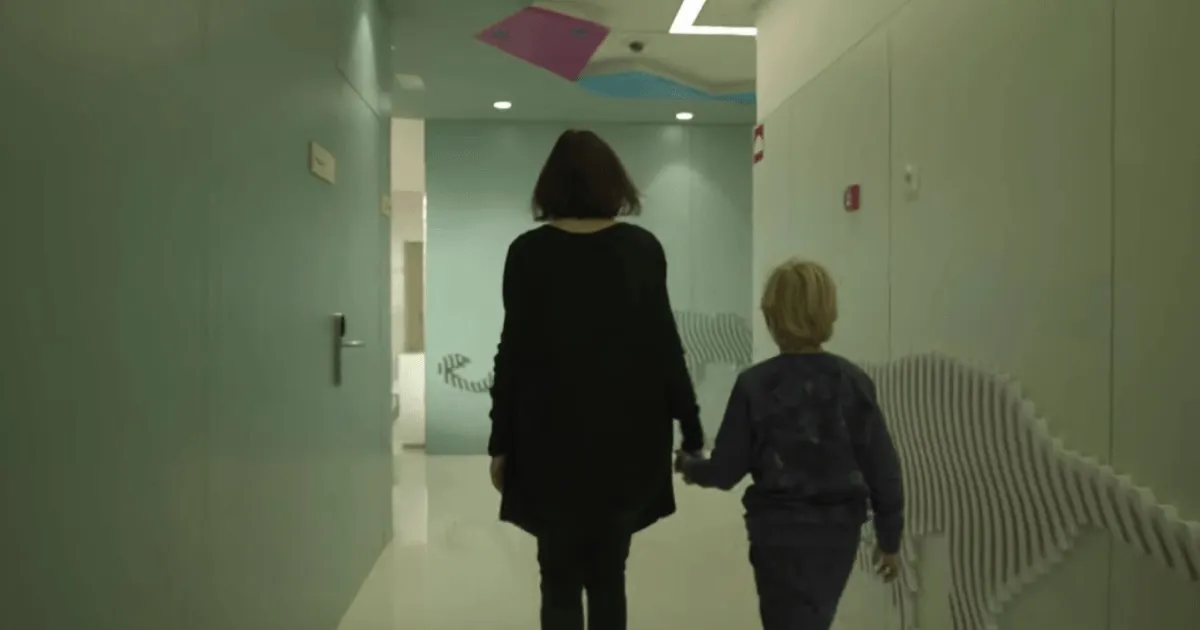
At the Ambulatory Surgery Unit (UCA) at the SJD Barcelona Children's Hospital we work to ensure children experience the surgical process without distress or anxiety.
SJD Barcelona Children's Hospital was the fist paediatric centre in Spain to implement an Ambulatory Surgery Unit (UCA) in 1996. With more than two decades of experience, our professionals care for more than 6,000 children each year and keep improving the protocols for surgeries that are more tolerable for patients and their families.
The Ambulatory Surgery Unit (UCA) at SJD Barcelona Children's Hospital performs surgeries that do not require admitting the child to hospital. Ambulatory surgery can be performed with local, regional or general anaesthesia. If there are no complications, these surgeries allow the patient to return home a few hours after the operation.
It is therefore important that the child be well cared for after surgery, that he/she does not have to climb stairs, that he/she has a medical follow-up and that he/she is close enough to the Hospital to be taken there easily if necessary. Telephone contact is also essential.
IMPORTANT: If in the days prior to the surgery the child has fever, vomiting, diarrhoea, bronchitis or any contagious disease such as chickenpox, call us from Monday to Friday from 8:15 a.m. to 2:30 p.m. on the telephone number +34 93 253 21 00 (ext. 72452).

Why SJD Barcelona Children's Hospital?
Personalised information and care are fundamental elements of the operation of the Ambulatory Surgery Unit at SJD Barcelona Children's Hospital. Ensuring patients and their families are calm and understand the process facilitates surgery and makes the children's experience less traumatic.
The child is a participant, along with his/her parents, of the type of surgery that he/she will undergo. We also explain which anaesthesia will be given so they know the symptoms.
From admission and sedation in the operating room to awakening in the resuscitation area, the family can accompany the patient following the instructions of the medical and nursing staff. The child is separated as little as possible from the family to reduce anxiety.
La distracción es clave para reducir la ansiedad de los pequeños pacientes cuando entran a la sala de operaciones. Los payasos pueden acompañar a los niños al quirófano con uno de sus familiares, y estar con ellos hasta que les anestesian. La risa en este ambiente consigue relajar a los niños y, a su vez, hace que estén menos tensos y el efecto de la anestesia sea más eficaz.
We contact the family in the pre- and post-operative stages. The medical and nursing team conducts telephone consultations, a support that is useful to resolve doubts and detect possible problems.
If the patient is calm, cooperative and old enough, he/she can express whether he/she prefers total or local anaesthesia or sedation. Medical discretion prevails over the family's choice, but if possible the technique is agreed upon according to the needs of each patient and the surgery to be undertaken.
Our goal is for the child to wake up without pain and without a bad memory of the sedation. We are a leading unit for inhalation anaesthesia, a technique that offers children the possibility of inhaling the anaesthesia easily, through a mask, to avoid at least one of the dreaded injections before surgery.
Not having to admit the patient also reduces hospital infections and the rate of post-surgical complications. Once the surgery has been performed, we give guidelines to the families so they can administer oral medication to the patient to control the pain and prevent possible infections.